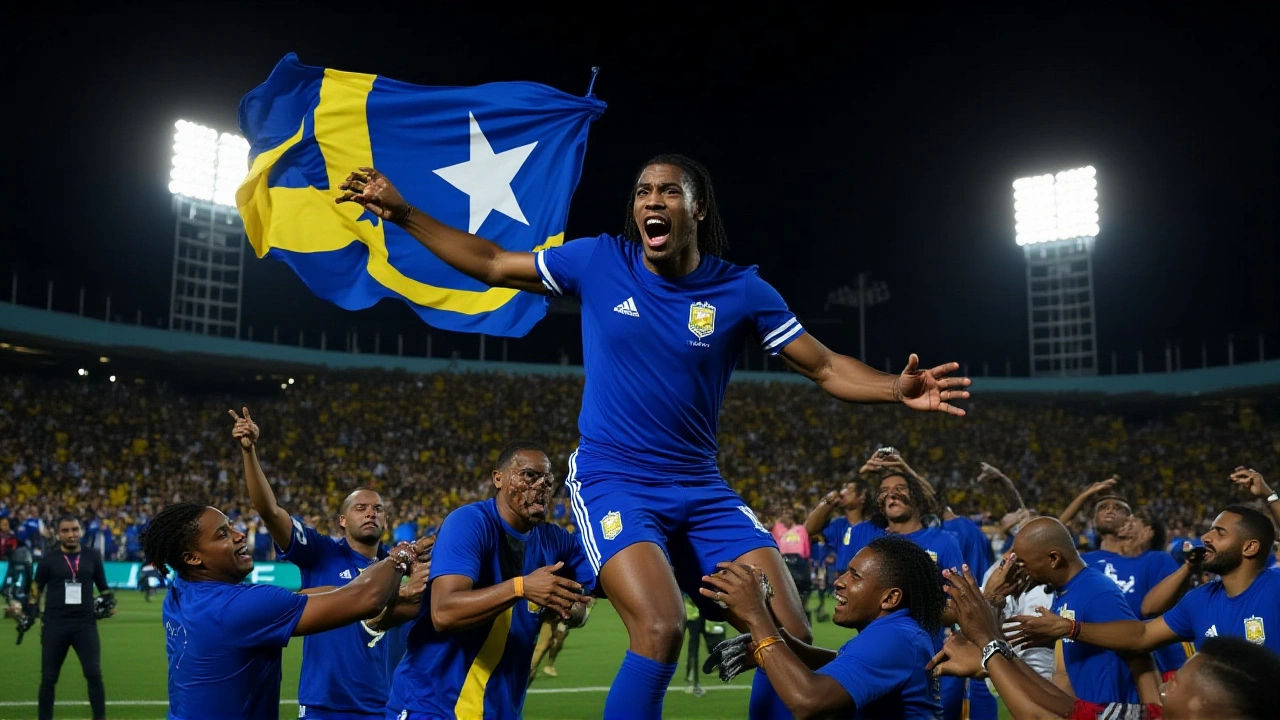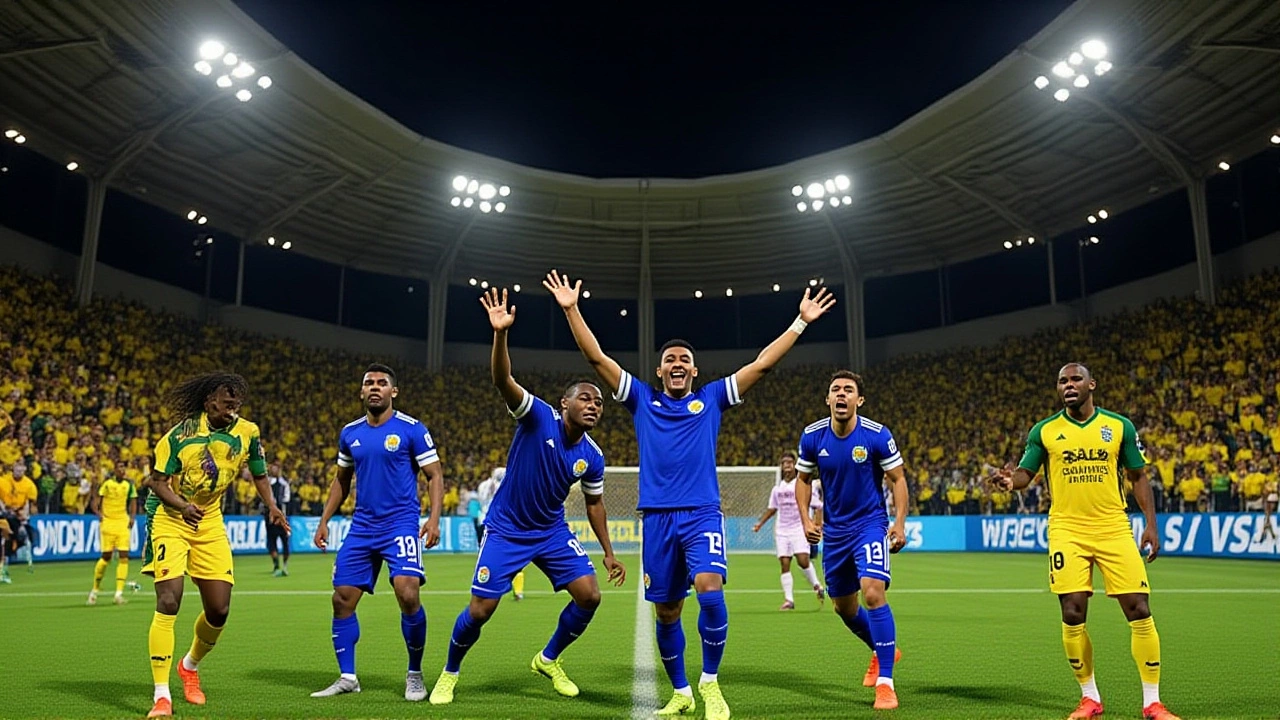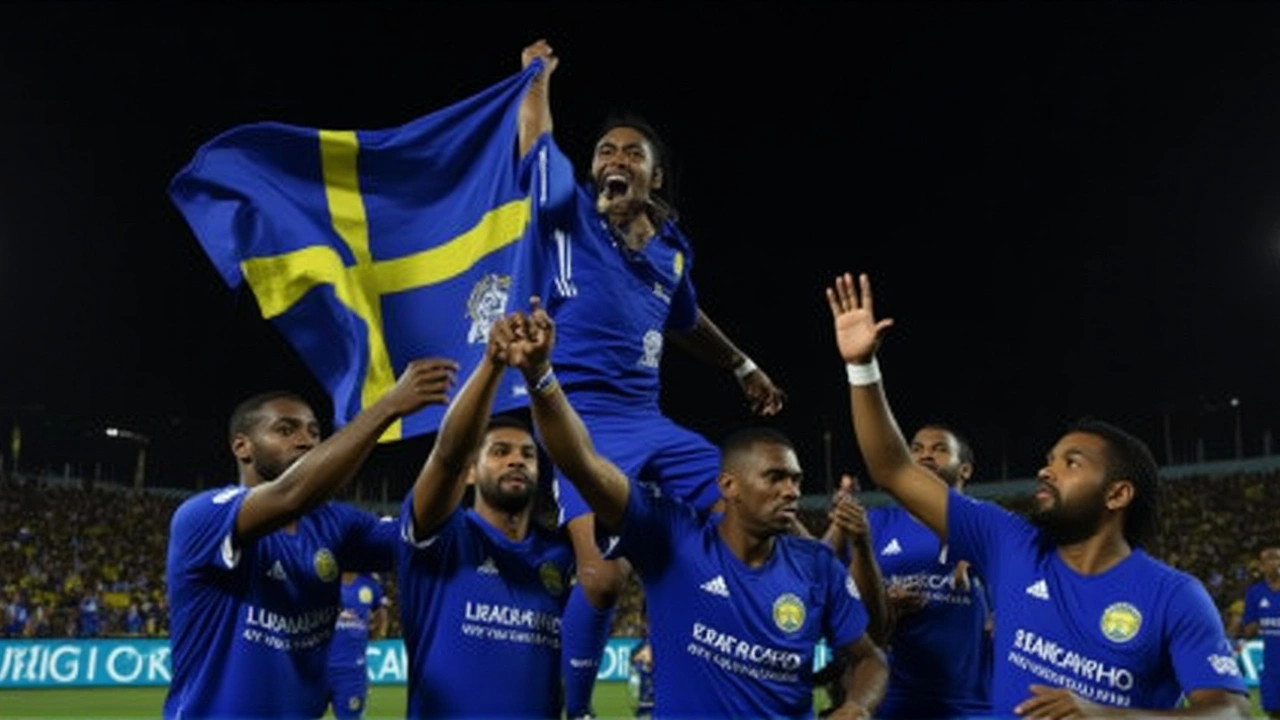On November 18, 2025, Curaçao stunned the football world by becoming the smallest sovereign nation ever to qualify directly for a FIFA World Cup finals — a historic leap that redefined what’s possible in international soccer. With a population of just 160,000, the Caribbean island nation held Jamaica to a 0-0 draw in a tense, rain-slicked match in Willemstad, securing automatic qualification for the 2026 FIFA World CupCanada, Mexico, and the United States. The result wasn’t just a win — it was a seismic shift. Meanwhile, Suriname, population 600,000, pulled off one of the most improbable comebacks in qualifying history: a last-second goal in their 3-1 defeat to Guatemala in Guatemala City eliminated Honduras and sent Suriname to the intercontinental playoffs. The twist? Suriname had been outplayed for 89 minutes. One moment. One goal. One dream kept alive.
History in the Making: Curaçao’s Quiet Revolution
Curaçao didn’t roar into the World Cup — they slipped in, quietly, through sheer resilience. Their qualification came not with a flourish, but with a stubborn 0-0 draw against Jamaica, a team many expected to breeze through Group B. Jamaica’s head coach, Steve McClaren, had built a squad brimming with Premier League talent, and pre-tournament odds favored them heavily. But Curaçao’s defense, led by veteran goalkeeper Wesley Hoedt (on loan from Dutch Eredivisie side Vitesse), held firm. A late Jamaican penalty appeal was waved off by referee José Carlos Ramírez after VAR review — a moment that sent the stands in Willemstad into delirium. For a nation smaller than many U.S. college towns, this wasn’t just qualification. It was validation.
Previous record-holder Iceland (population 370,000) qualified for the 2016 Euros and 2018 World Cup — but Curaçao now stands alone as the smallest nation ever to reach the men’s World Cup finals. Their journey wasn’t glamorous. They lost their first two qualifiers. They drew with Suriname. They beat Trinidad and Tobago 2-1 in a match few remembered. But in the final stretch, they became unbreakable. "It’s not about size," said Curaçao captain Renato Vugt after the match. "It’s about heart. And we’ve got more of it than anyone gave us credit for."
The Miracle in Guatemala City
While Curaçao celebrated quietly, the drama unfolded 2,000 miles away in Guatemala City. Suriname, trailing 3-0 in the 88th minute against a dominant Guatemala side, looked done. Eliminated. Forgotten. But then, in the 93rd minute, substitute striker Joey Jansen — a 21-year-old playing in the Dutch third division — pounced on a loose ball after a failed Guatemala clearance and slotted it home. The goal didn’t change the outcome of the match. But it changed everything else.
Honduras, who had drawn 0-0 with Costa Rica in the other Group C finale, suddenly found themselves out of the World Cup race. Honduras, a nation of nearly 10 million people and a former World Cup regular (2010, 2014, 2018), was knocked out by a team with one-fifteenth of its population. "It’s the kind of result you write about in novels," said International Soccer Break analyst in their November 19 video, "Suriname didn’t deserve to win that match — but they deserved to survive."
The Fall of Giants: Costa Rica and Honduras Out
Costa Rica’s elimination was perhaps the most shocking. The Ticos had qualified for five straight World Cups — 2014, 2018, 2022, and before that, 2006 and 2010. Their 0-0 draw with Honduras wasn’t just a stalemate; it was a collapse. Neither team scored. Neither team looked like they believed they could win. Fans in San José watched in silence as their team’s World Cup streak ended. Honduras, meanwhile, had held a 4-point lead over Suriname entering the final matchday. One goal. One minute. Gone.
"We thought we had this," said Honduran midfielder Maynor Figueroa, 41, in his final international appearance. "We played like we were afraid to lose. And that’s what cost us."

Haiti’s Return After Half a Century
Amid the chaos, Haiti delivered a story of redemption. Their 2-0 win over Nicaragua — powered by goals from Jonathan David (yes, the same Jonathan David who stars for Lille and Canada’s national team, but playing here under his Haitian heritage eligibility) and Kevin Lafrance — marked their first World Cup appearance since 1974. The team, largely made up of players from Quebec and France, celebrated with tears and traditional rara music in Port-au-Prince. "Fifty years is a long time," said Haitian coach Jean-Jacques Pierre. "But tonight, we proved our soul hasn’t faded."
What’s Next: Suriname’s Do-or-Die Playoff
Suriname’s journey isn’t over. They’ve earned a spot in the intercontinental playoffMexico in March 2026. They’ll face a team from Asia, Africa, or Oceania — likely either Jordan, New Zealand, or Senegal — for the final ticket to the 2026 World Cup. The stakes? A global stage. A chance to play against Brazil, Spain, or Germany. For a country with no professional league and a national team that trains in a single stadium in Paramaribo, it’s unimaginable.
"We’re not just playing for ourselves," said Jansen, the hero of Guatemala City. "We’re playing for every kid in Suriname who’s told they’re too small to dream big."

The Bigger Picture: CONCACAF’s New Order
For decades, CONCACAF qualifying was a predictable hierarchy: Mexico, USA, Costa Rica, Honduras, Panama — repeat. But in 2025, the rules changed. Panama qualified automatically with a 3-0 win over El Salvador, but they were barely the story. The real narrative? The rise of the overlooked. The fall of the expected. The power of a single moment.
"This isn’t luck," said former U.S. national team captain Clint Dempsey in a post-match analysis. "It’s preparation. It’s belief. And it’s the fact that soccer, at its core, still belongs to the underdog."
Frequently Asked Questions
How did Curaçao qualify despite drawing with Jamaica?
Curaçao finished second in Group B with 10 points from six matches, tied on points with Jamaica but ahead on goal difference (+1 to Jamaica’s -1). Jamaica needed a win to top the group, but the 0-0 draw meant Curaçao claimed the automatic spot. Jamaica entered the match as favorites but couldn’t break through a disciplined defense, and their late penalty appeal was denied after VAR review.
Why is Suriname’s playoff spot so significant?
Suriname, with a population of just 600,000, became the smallest nation to reach the intercontinental playoffs since the format was expanded in 2022. Their last-minute goal against Guatemala eliminated Honduras — a team with 16 times their population — making it one of the most lopsided upsets in World Cup qualifying history. Suriname has never qualified for a World Cup before, and this is their first-ever playoff berth.
What does Haiti’s qualification mean for Caribbean football?
Haiti’s return to the World Cup after 50 years is a landmark for Caribbean football, proving that nations without professional leagues or infrastructure can still compete at the highest level. Their squad, built around diaspora players from Canada and France, shows how global talent pipelines are reshaping regional football. It also rekindles hope for smaller nations like Martinique and Guadeloupe, who remain ineligible due to FIFA rules.
What are the implications for future CONCACAF qualifying?
The 2026 qualifiers shattered the old hierarchy. With Honduras and Costa Rica eliminated, and Curaçao and Suriname rising, FIFA and CONCACAF may reconsider qualification formats to better reward consistency over star power. Analysts suggest future tournaments could include more group-stage matches for smaller nations to build competitive experience — and reduce the likelihood of one goal deciding a nation’s fate.
Where will the Suriname playoff match be played?
The intercontinental playoff match is scheduled for March 2026 in Mexico, as confirmed by FIFA. The venue will be either Estadio Azteca in Mexico City or Estadio BBVA in Monterrey. Suriname will face the winner of a preliminary match between teams from Asia, Africa, or Oceania, with the draw to be held in December 2025. The winner earns the 48th and final spot in the 2026 World Cup.
Is Curaçao officially recognized as a sovereign nation by FIFA?
Yes. Curaçao became a full FIFA member in 2011 after the dissolution of the Netherlands Antilles. Though it remains a constituent country of the Kingdom of the Netherlands, FIFA recognizes it as an independent footballing nation. This means Curaçao can compete in World Cup qualifiers and other international tournaments as its own entity — making their 2026 qualification even more historic.
